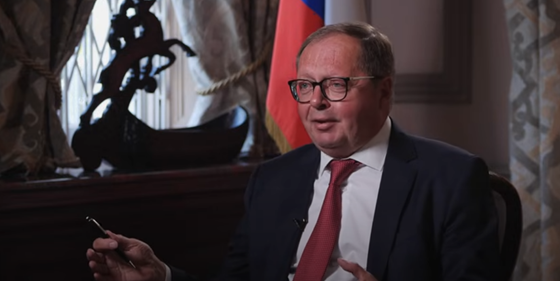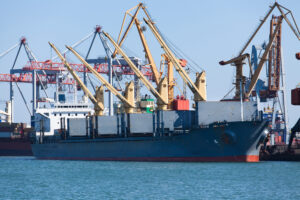
Russia’s ambassador to the UK questioned in an interview to BBC about Russian sensors trying to track British nuclear submarines said that he is “not going to deny,” but claimed Moscow posed no threat to the U.K.
Asked on BBC with Laura Kuenssberg whether he objected to the claims, Andrei Kelin said: “I am not going to deny it, but I wonder whether we really have an interest in following all the British submarine with very old outdated nuclear warheads… all these threats are extremely exaggerated.”
Pressed further by Kuenssberg, the ambassador added: “I’m denying existence of threats for the United Kingdom.”
The BBC’s Laura Kuenssberg asked the ambassador: “Those are serious accusations, and that’s an act of genuine hostility against the United Kingdom.”
“This threat has been invented, absolutely, there is no threat at all from Russia to the UK,” he added after Kuenssberg pushed him further.
Andrei Kelin added: “There is no threat to the UK from Russia.”
“If the UK wants to continue to worsen relations [with Russia], to invent new threats ostensibly coming from Russia, which is not the case, that is up to the UK.”
Meanwhile, the Russian embassy to the UK commented last week on the “anti-Russian allegations,” as it said, “by the British media.”
“Russia has never posed a threat to the security of the UK or its people,” the embassy highlighted.
“A tidal wave of hastily concocted fantasy stories about the so-called “Russian threat” has been sweeping the pages of the UK press. This time the threat allegedly lurks in the sea depths off the British shores. The narrative blends a surreal medley of fables about Russian research vessels and “oligarchs’ superyachts” executing military tasks, endless tales of cybercriminals targeting the British Army, as well as speculations about mysterious robotic tentacles with which Moscow allegedly seeks to tamper with UK’s underwater infrastructure.”
In recent months, critical cables in the Baltic Sea have been damaged, leading to suspicions of Russian sabotage. In response, NATO announced earlier this year the launching of ‘Baltic Sentry’ to enhance its military presence in the Baltic Sea and improve its allies’ ability to respond to destabilizing acts.
The so-called Baltic Sentry program, a new military activity by NATO to strengthen the protection of critical infrastructure, was announced at a meeting in Helsinki by the NATO secretary general, Mark Rutte.
‘Baltic Sentry’ will involve a range of assets, including frigates and maritime patrol aircraft.
The secretary general also announced the deployment of new technologies, including a small fleet of naval drones, and highlighted that NATO will work with allies to integrate national surveillance assets – all to improve the ability to protect critical undersea infrastructure and respond if required.
NATO will work within the critical undersea infrastructure network, which includes industry, to explore further ways to protect infrastructure and improve resilience of underwater assets.
Recently, the Royal Navy frigate HMS Somerset returned home to Plymouth after more than 100 intensive days on national tasking, including six operations tracking Russian vessels in UK waters.
Sailors from the submarine hunter were greeted by friends and family as she sailed back into His Majesty’s naval base Devonport after a mission that began in December, cutting short Christmas leave and saw her sail 18,000 nautical miles.
Most of those miles were in home waters, the English Channel and North Sea, as HMS Somerset was closely monitoring Russian ships as they sailed back to Baltic ports from Syria.


